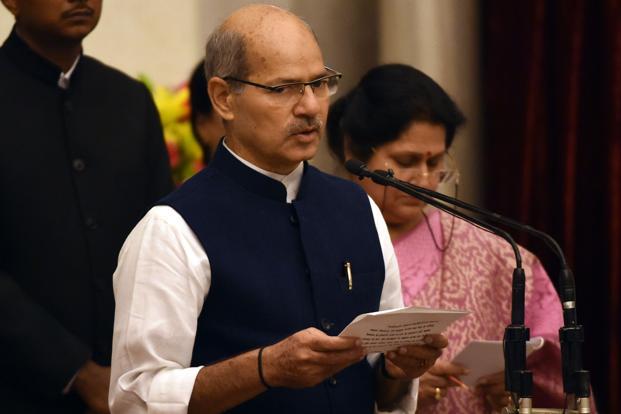NEW DELHI: The Centre has prepared a draft concept note to ensure that air conditioned buildings in the country have a preset temperature, the Rajya Sabha was informed.
“The Environment Ministry is mindful of international developments on the subject. A draft concept note has been prepared on minimum acceptable indoor temperature for air conditioned buildings,” Environment Minister Anil Madhav Dave said in response to a written reply to a question dated April 3.
He was asked whether the Government proposes to bring a legislation that will require buildings, commercial spaces and airports to ensure that air-conditioners function at pre-set temperatures.
He said that as per reports, Japan had launched a campaign in 2005 encouraging business and public in general to preset air conditioners at 28 degrees Celsius during summers, in order to reduce energy consumption.
More recently, an action plan has been developed in 2016 that requires presetting of air conditioners in government buildings in Japan while China has also prescribed air-conditioning temperature control standard for public buildings.
“There are no available reports for regulation on presetting of temperature for air conditioners in Europe,” he said.
Dave maintained that setting of temperature of air conditioners at 24 degrees Celsius will lead to reduction in energy consumption as compared to the prevalent practice of operating air conditioners at 20 degrees Celsius or below.
“Reduction in cooling requirement has a relationship with the quantity of refrigerant used such as Hydrochlorofluorocarbons (HCFCs). However, pre-setting of higher indoor or room temperature in air conditioners is directly related with reduction in energy consumption,” he said.
The Environment Minister said that India is phasing out production and consumption of HCFCs as per the Montreal Protocol schedule.
“The baseline level is the average of production and consumption of HCFCs in 2009 and 2010, freeze at the baseline level in 2013, and successive reductions of 10 per cent, 35 per cent and 67.5 per cent in 2015, 2020, 2025 respectively, with complete phase out in 2030 with a service tail of 2.5 per cent till 2040.
“In HCFC Phase out Management Plan (HPMP) India has not only met the compliance obligations of the Montreal Protocol but exceeded the phase out targets through a series of policy measures regulations, systematic technology conversions in the industry, technical assistance and awareness generation,” he said.
The ongoing HPMP Stage II would result in phasing out of 60 per cent of the HCFCs by January 1, 2023 against the target of 35 per cent phase out in 2020 and 65 per cent phase out in 2025, he added. (AGENCIES)


